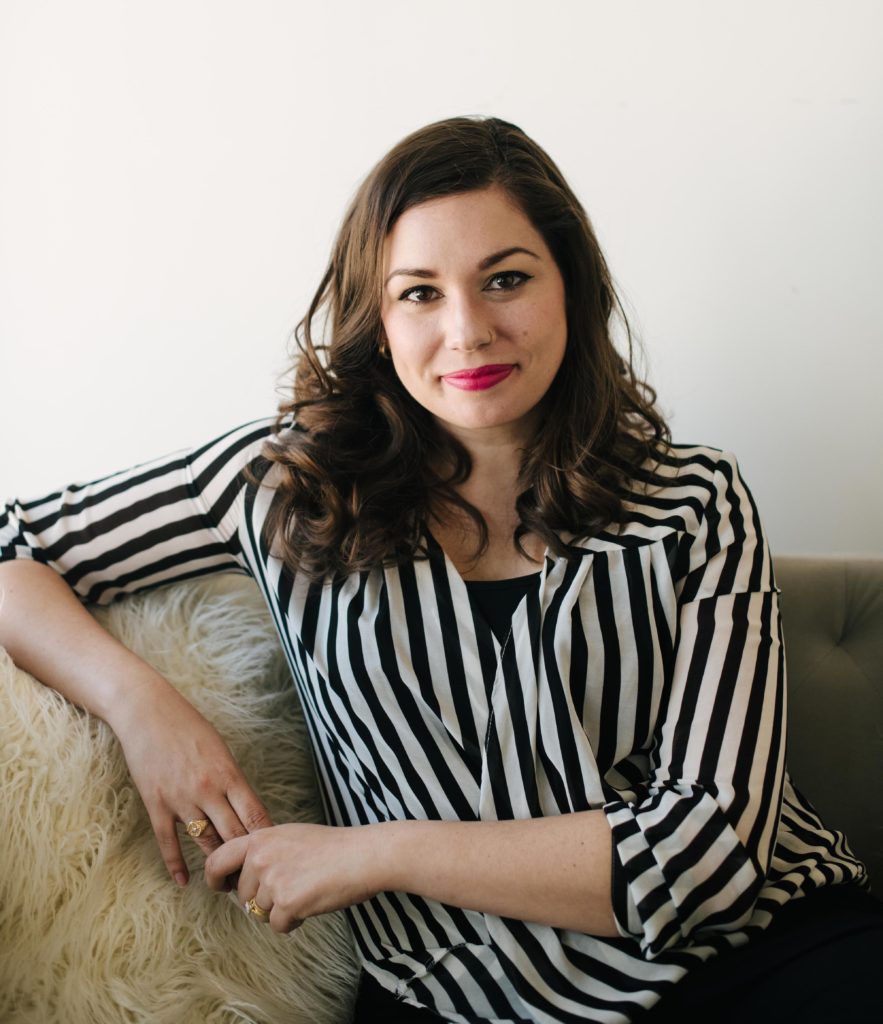photo by Laura Alpizar
As the founder of Feminist Book Club, I spend a lot of my time thinking about and grappling with my privilege and my responsibility to the intersectional feminist movement. I am a white, cisgender, middle-class, able-bodied, English-speaking, educated woman, business owner, and leader. Trust me when I say that I consider my positionality and privilege in every decision I make for this company. How can I wield it for good?
Here are some ways I’ve chosen to decenter my own identities in business decisions:
- + Our books are chosen by our members through nominations and ranked voting. This way, I’m not some omnipotent leader who consciously or unconsciously selects stories that reflect my own.
- + When publishers and publicists pitch an author or book to me, I let them know that if they have any debut women of color on their rosters, we would happily feature them on our platforms.
- + I select our monthly themes based on a combination of members’ suggestions and holes in our reading history, such as trans authors, Native American/Indigenous authors, and authors living with a disability (some themes you’ll definitely see in the next year!).
- + I don’t have employees (yet!), but I do work with independent contractors. When seeking a new contractor, I consider their identities and what that could bring to the table. So far, this has meant working with queer interns who create awesome LGBTQ content, a Black podcast editor who has called me into conversations about the language I use (as have a number of podcast listeners – thank you!), blog contributors who can write #OwnVoices reviews of books and provide a nuanced overview of intersectionality, and more.
This list isn’t complete. It’s not all that Feminist Book Club does in service of inclusivity. (And even if I were to list out everything we do, it wouldn’t be enough. We are all works in progress.)
Despite my personal and professional work towards social justice,
I don’t call myself an ally.
Ally isn’t a label or an identity that I can wear like a literal badge of honor.
Ally isn’t a checklist of characteristics that I either have or don’t.
Ally is a verb.
It’s something we must opt into with every decision, something we must actively pursue with courage and audacity.
There are countless moments everyday where we could make better, more inclusive, more anti-racist, more feminist decisions.
We have to learn to recognize those opportunities and then act on them.
They won’t always be the easiest choices; in fact, they’ll likely require more effort, more capital, and more time.
And yet, isn’t it worth it?
Isn’t a little extra effort worth helping another human feel fully human?
That extra dollar or two, that extra 15 minutes, that extra email introduction worth letting someone know: YOU MATTER.
I hope one day these small acts of honoring the inherent dignity of everyone, particularly folks on the margins, won’t be seen as radical, but ordinary.
My DMs and inbox are always open for suggestions on how Feminist Book Club can do better – hello@feministbookclub.com



Pingback: Convenience Store Woman: A Review + I Don’t Call Myself an Ally - Feminist Book Club